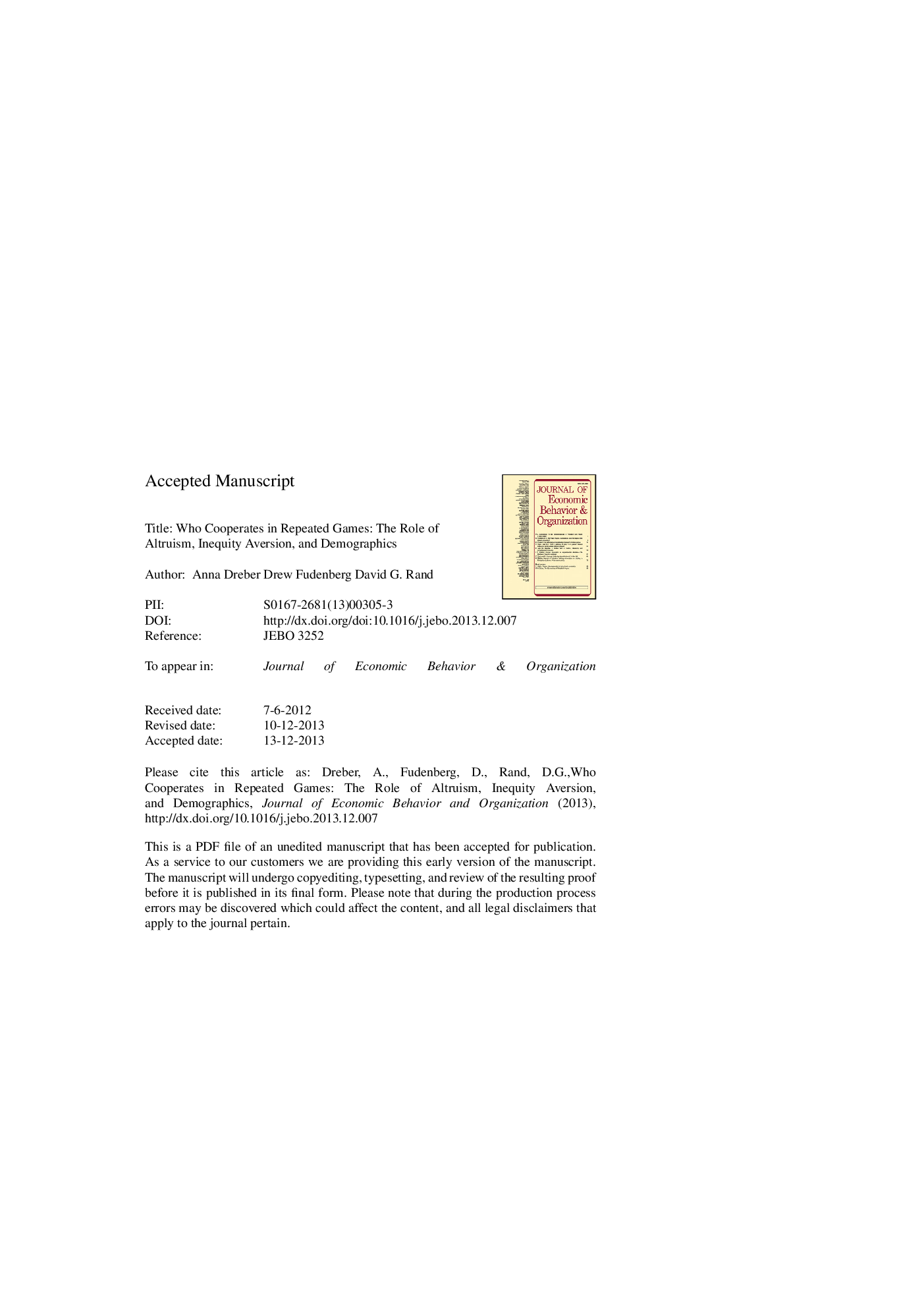| کد مقاله | کد نشریه | سال انتشار | مقاله انگلیسی | نسخه تمام متن |
|---|---|---|---|---|
| 7243614 | 1471665 | 2014 | 37 صفحه PDF | دانلود رایگان |
عنوان انگلیسی مقاله ISI
Who cooperates in repeated games: The role of altruism, inequity aversion, and demographics
ترجمه فارسی عنوان
چه کسی در بازی های تکراری همکاری می کند: نقش بی نظیر، بی عدالتی، و جمعیت شناسی
دانلود مقاله + سفارش ترجمه
دانلود مقاله ISI انگلیسی
رایگان برای ایرانیان
کلمات کلیدی
موضوعات مرتبط
علوم انسانی و اجتماعی
اقتصاد، اقتصادسنجی و امور مالی
اقتصاد و اقتصادسنجی
چکیده انگلیسی
We explore the extent to which altruism, as measured by giving in a dictator game (DG), accounts for play in a noisy version of the repeated prisoner's dilemma. We find that DG giving is correlated with cooperation in the repeated game when no cooperative equilibria exist, but not when cooperation is an equilibrium. Furthermore, none of the commonly observed strategies are better explained by inequity aversion or efficiency concerns than money maximization. Various survey questions provide additional evidence for the relative unimportance of social preferences. We conclude that cooperation in repeated games is primarily motivated by long-term payoff maximization and that even though some subjects may have other goals, this does not seem to be the key determinant of how play varies with the parameters of the repeated game. In particular, altruism does not seem to be a major source of the observed diversity of play.
ناشر
Database: Elsevier - ScienceDirect (ساینس دایرکت)
Journal: Journal of Economic Behavior & Organization - Volume 98, February 2014, Pages 41-55
Journal: Journal of Economic Behavior & Organization - Volume 98, February 2014, Pages 41-55
نویسندگان
Anna Dreber, Drew Fudenberg, David G. Rand,
